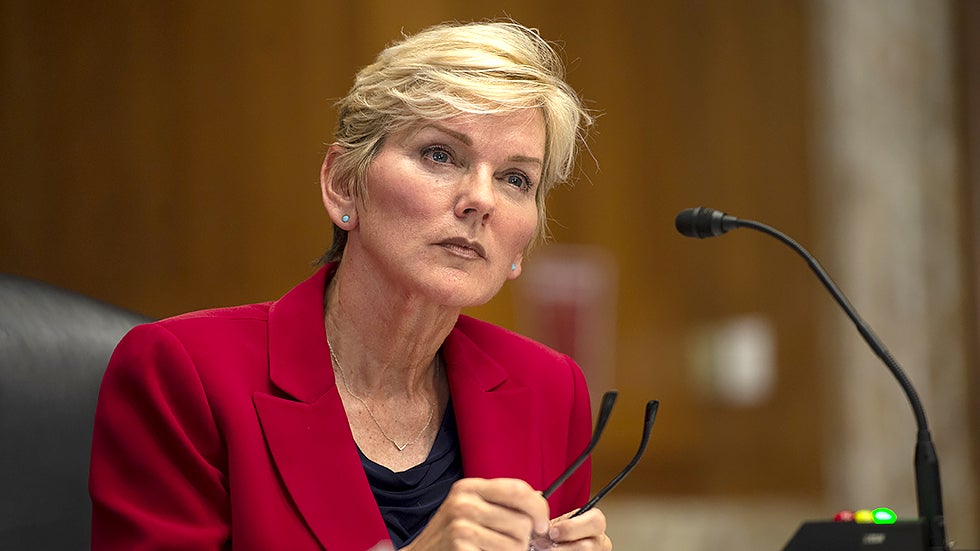Energy Secretary Jennifer Granholm Jennifer GranholmGranholm touts ‘really exciting’ provision in infrastructure bill at COP26 World’s energy ministers to convene in Pittsburgh next year Overnight Energy & Environment — Presented by The American Petroleum Institute — Biden official defends ‘carrots’-based approach MORE said on Sunday that she hopes gas prices will not reach $4 per gallon soon, adding that the Organization of the Petroleum Exporting Countries (OPEC) is “controlling the agenda.”
Jennifer GranholmGranholm touts ‘really exciting’ provision in infrastructure bill at COP26 World’s energy ministers to convene in Pittsburgh next year Overnight Energy & Environment — Presented by The American Petroleum Institute — Biden official defends ‘carrots’-based approach MORE said on Sunday that she hopes gas prices will not reach $4 per gallon soon, adding that the Organization of the Petroleum Exporting Countries (OPEC) is “controlling the agenda.”
“According to AAA, the national average of gas prices is now $3.42 a gallon. Bank of America is predicting crude oil prices could soar another 50 percent by next June. Could the average gas price in America be $4 a gallon in the United States soon?” “State of the Union” co-anchor Dana Bash Dana BashFive things to watch in the Virginia governor’s race Buttigieg twins dress as ‘twinfrastructure’ for Halloween Officials, lawmakers express optimism on infrastructure, spending vote MORE asked Granholm on CNN.
Dana BashFive things to watch in the Virginia governor’s race Buttigieg twins dress as ‘twinfrastructure’ for Halloween Officials, lawmakers express optimism on infrastructure, spending vote MORE asked Granholm on CNN.
“Well, we certainly hope not,” the Energy secretary answered, saying President Biden Joe BidenVirginia loss lays bare Democrats’ struggle with rural voters After victory, Biden seeks political rebound Sunday shows preview: House passes bipartisan infrastructure bill; Democrats suffer election loss in Virginia MORE “is all over this.”
Joe BidenVirginia loss lays bare Democrats’ struggle with rural voters After victory, Biden seeks political rebound Sunday shows preview: House passes bipartisan infrastructure bill; Democrats suffer election loss in Virginia MORE “is all over this.”
“Of course, every president is frustrated because they can’t control the price of gasoline because it’s a global market. You can call upon increased supply, which he has done and OPEC is unfortunately controlling the agenda with respect to oil prices. OPEC is a cartel, and it controls over 50 percent of the supply of gasoline,” she added.
Granholm also noted that OPEC countries decided last week against increasing their supply, adding that it is “going to increase the chokehold on access to affordable fuel at the pump.”
She also acknowledged that Americans should expect to pay higher costs for heating their homes in the winter.
“We have the same problem in fuels that the supply chains have, which is that the oil and gas companies are not flipping the switch as quickly as the demand requires.”
